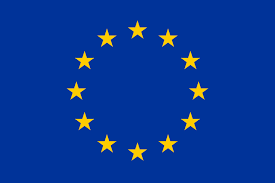The Importance of Integrating Social and Healthcare Systems to Improve Aging Care
The aging of the global population presents significant challenges for health and social service systems worldwide. According to the World Health Organization (WHO) in its 2018 World Report on Aging and Health, the proportion of the global population over 60 is projected to nearly double from 12% in 2015 to 22% in 2050. Furthermore, by that year, 80% of older people are expected to be living in low- and middle-income countries. This rapid population aging requires urgent adaptation of our social and healthcare systems to effectively address this demographic shift.
Global Challenges and WHO Strategies
In line with its Global Strategy and Action Plan on Aging and Health 2016–2020 and the Decade of Healthy Aging 2020–2030, the WHO has identified four key action areas to address these challenges:
- Changing Our Perception of Age and Aging: It is essential to modify how we think, feel, and act regarding age and aging. Promoting a positive view of aging can help reduce stigma and discrimination against older people.
- Fostering Inclusive and Accessible Communities: Communities should be designed to support the abilities and capabilities of older people, ensuring they can fully participate in social and economic life.
- Providing Person-Centered Integrated Care: Primary health services must be adapted to respond to the specific needs of older people, providing continuous and integrated care.
- Access to Long-Term Care: It is crucial to ensure that older people who need long-term care can access these services in a dignified and respectful manner.
Aging in Europe
The European Commission, through its Green Paper presented in January, highlights the impact of demographic aging in the European Union (EU). Currently, 20% of the EU population is over 65, and this figure is projected to rise to 30% by 2070. Additionally, the proportion of people over 80 is expected to double, reaching 13% by 2070. This increase translates into a greater demand for long-term care, projected to rise from 19.5 million in 2016 to 23.6 million in 2030 and to 30.5 million in 2050.
Frailty, Loneliness, and Social Isolation
Aging brings an increase in frailty, a multifactorial condition that can lead to major adverse events if not identified and treated in time. Loneliness and social isolation are prevalent conditions among the elderly, acting as health risk factors and contributing to disability and dependency. Various studies indicate that widows and individuals with chronic health problems and depression are particularly vulnerable.
Social isolation increases morbidity and mortality rates, comparable to other frailty factors. Detecting and preventing these factors is crucial to improving the quality of life for the growing elderly population.
The COVID-19 Pandemic and the Need for Digital Tools
The COVID-19 pandemic highlighted the urgent need for effective digital tools to rapidly implement eHealth services such as telemedicine, contact tracing, and maintaining relationships between people, families, and healthcare professionals. Using technology to stimulate social participation, prevent the isolation of older people, and facilitate access to social and healthcare services is a reality that society must work towards and advance to respond to a significant portion of European citizens.
The eCare Project
In this context, the eCare project emerges as a critical initiative to develop digital solutions that address these changes and emerging needs. eCare aims to create tools that facilitate the integration of social and healthcare systems, improving care for older people and adapting to the demands of an ever-changing society.
Integrating social and healthcare systems is not only an urgent need but also an opportunity to build a more inclusive and resilient society, capable of providing adequate and dignified care to a rapidly ageing population. Collaboration between governments, institutions, and civil society is fundamental to achieving this goal and ensuring healthy and active ageing for all.






